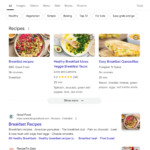Wondering if robo trading bots suit your risk tolerance? These automated tools have transformed investing, offering precision and speed. However, aligning them with your risk comfort can be tricky.
This article dives into how these bots assess risk, customize strategies, and compare to traditional methods. Let’s explore whether these digital assistants can match your financial goals and risk appetite.
Assess your risk tolerance with insights from Bitcoin Bank Breaker, where traders connect with educational experts to make informed decisions about robo trading bots.
Methods Robo Trading Bots Use to Assess Risk
Robo trading bots employ a variety of methods to evaluate and manage risk, ensuring that their trading activities align with the investor’s risk tolerance. One key method is algorithmic analysis, where bots analyze vast amounts of historical data to identify trends and patterns, aiding in predicting future market movements.
They use statistical models to estimate the likelihood of various outcomes. Additionally, bots rely on risk metrics such as Value at Risk (VaR) and Conditional Value at Risk (CVaR) to understand potential losses in different market conditions.
To further mitigate risk, bots often implement diversification strategies, spreading investments across different assets to lessen the impact of poor performance from any single asset on the overall portfolio.
Another method involves stress testing, where bots simulate various market scenarios to test how the portfolio might perform under different conditions, preparing for unexpected market events.
Continuous real-time monitoring allows bots to react swiftly to market changes, adjusting strategies on-the-fly to avoid potential losses. Moreover, bots assign a risk score to different assets and strategies, helping in the selection of trades that fit within the predefined risk tolerance levels.
These methods work together to help robo trading bots manage risk effectively, ensuring that the trades they execute are in line with the investor’s comfort level.
Customization Options for Individual Risk Profiles
Robo trading bots provide several customization options to align with an individual’s risk profile, ensuring that the bot’s trading strategies suit the investor’s unique risk tolerance. Investors can set their risk levels, ranging from conservative to aggressive, which determines the bot’s approach to trading and balances potential returns with acceptable risks.
Many bots allow users to adjust various parameters such as maximum drawdown, stop-loss limits, and investment size, tailoring the bot’s strategies to individual preferences. Additionally, investors can select which types of assets they want the bot to trade in, including stocks, bonds, commodities, and cryptocurrencies. This choice of asset mix helps manage risk effectively.
Bots often offer a selection of trading strategies, allowing users to pick those that match their risk appetite, such as momentum trading for aggressive investors or mean reversion for those more risk-averse. Some bots feature automatic portfolio rebalancing to ensure the portfolio remains aligned with the investor’s risk tolerance by periodically adjusting the asset allocation.
Backtesting capabilities enable users to test their customized strategies against historical data, helping to understand how these strategies might perform under different market conditions.
Additionally, investors can set up alerts and notifications to stay informed about the bot’s activities, allowing for manual intervention if necessary. These customization options make it easier for investors to align robo trading bots with their specific risk profiles, ensuring a personalized trading experience.
Comparing Bot Strategies with Traditional Risk Management
When comparing bot strategies with traditional risk management, several key differences and similarities emerge, helping investors decide which approach suits their needs best.
Robo trading bots rely heavily on automation and algorithms to make decisions, processing vast amounts of data quickly, whereas traditional risk management often depends on human judgment and expertise, providing nuanced insights based on experience.
Bots ensure consistent application of strategies without emotional interference, while traditional methods might be influenced by emotions, leading to inconsistent decisions.
The speed of execution is another significant difference; bots can execute trades in milliseconds, capitalizing on market opportunities that human traders might miss due to slower decision-making processes.
In terms of data analysis, bots use advanced analytics and machine learning to assess risk and predict market trends, while traditional risk management might rely more on qualitative analysis and historical data.
Both approaches offer customization, but bots typically provide more precision and flexibility with extensive options to tailor strategies based on individual risk profiles.
Cost efficiency is another factor, as using bots can be more cost-effective with generally lower fees compared to hiring professional fund managers, although the initial setup and subscription costs for bots should be considered.
Bots can quickly adapt to changing market conditions by updating their algorithms, while traditional risk management may take longer to adjust strategies due to the need for human intervention.
Lastly, bots offer transparency through clear, algorithm-based operations, whereas traditional risk management may involve more opaque decision-making processes. By understanding these aspects, investors can better assess the advantages and limitations of using robo trading bots versus traditional risk management, making an informed decision on which approach aligns better with their investment goals and risk tolerance.
Conclusion
Robo trading bots offer exciting possibilities for modern investors, but understanding their alignment with your risk tolerance is crucial. By evaluating their risk assessment methods and customization options, you can make informed choices. Always research thoroughly and consult financial experts to ensure these automated tools fit your investment strategy and risk preferences. Embrace technology wisely for a balanced portfolio.






